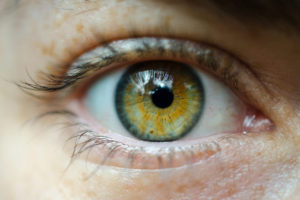Two years ago, at a meeting on science and education, Center for Healthy Minds Founder Richard Davidson challenged video game manufacturers to develop games that emphasize kindness and compassion instead of violence and aggression.
With a grant from the Bill & Melinda Gates Foundation, the University of Wisconsin–Madison professor is now answering his own call. With Kurt Squire, an associate professor in the School of Education and director of the Games+Learning+Society Initiative, Davidson received a $1.39 million grant this spring to design and rigorously test two educational games to help 8th graders develop beneficial social and emotional skills – empathy, cooperation, mental focus and self-regulation.
“By the time they reach the 8th grade, virtually every middle-class child in the Western world is playing smartphone apps, video games and computer games,” says Davidson, the William James and Vilas Research Professor of Psychology and Psychiatry at UW–Madison. “Our hope is that we can use some of that time for constructive purposes and take advantage of the natural inclination of children of that age to want to spend time with this kind of technology.”
The project grew from the intersection of Davidson’s research on the brain bases of emotion, Squire’s expertise in educational game design, and the Gates Foundation’s interest in preparing U.S. students for college readiness-possessing the skills and knowledge to go on to post-secondary education without the need for remediation.
“Skills of mindfulness and kindness are very important for college readiness,” Davidson explains. “Mindfulness, because it cultivates the capacity to regulate attention, which is the building block for all kinds of learning; and kindness, because the ability to cooperate is important for everything that has to do with success in life, team-building, leadership and so forth.”
He adds that social, emotional and interpersonal factors influence how students use and apply their cognitive abilities.
"Our hope is that we can begin to address these questions with the use of digital games in a way that can be very easily scaled and, if we are successful, to potentially reach an extraordinarily large number of youth."
Building on research from the Center for Healthy Minds at the Waisman Center, the initial stage of the project will focus on designing prototypes of two games. The first game will focus on improving attention and mental focus, likely through breath awareness.
“Breathing has two important characteristics. One is that it’s very boring, so if you’re able to attend to that, you can attend to most other things,” Davidson says. “The second is that we’re always breathing as long as we’re alive, and so it’s an internal cue that we can learn to come back to. This is something a child can carry with him or her all the time.”
The second game will focus on social behaviors such as kindness, compassion and altruism. One approach may be to help students detect and interpret emotions in others by reading non-verbal cues such as facial expressions, tone of voice and body posture.
“We’ll use insights gleaned from our neuroscience research to design the games and will look at changes in the brain during the performance of these games to see how the brain is actually affected by them,” says Davidson. “Direct feedback from monitoring the brain while students are playing the games will help us iteratively adjust the game design as this work goes forward.”
Their analyses will include neural imaging and behavioral testing before, during, and after students play the games, as well as looking at general academic performance.
The results will help the researchers determine how the games impact students and whether educational games are a useful medium for teaching these behaviors and skills, as well as evaluate whether certain groups of kids benefit more than others.
“Our hope is that we can begin to address these questions with the use of digital games in a way that can be very easily scaled and, if we are successful, to potentially reach an extraordinarily large number of youth,” says Davidson.
- Jill Sakai






